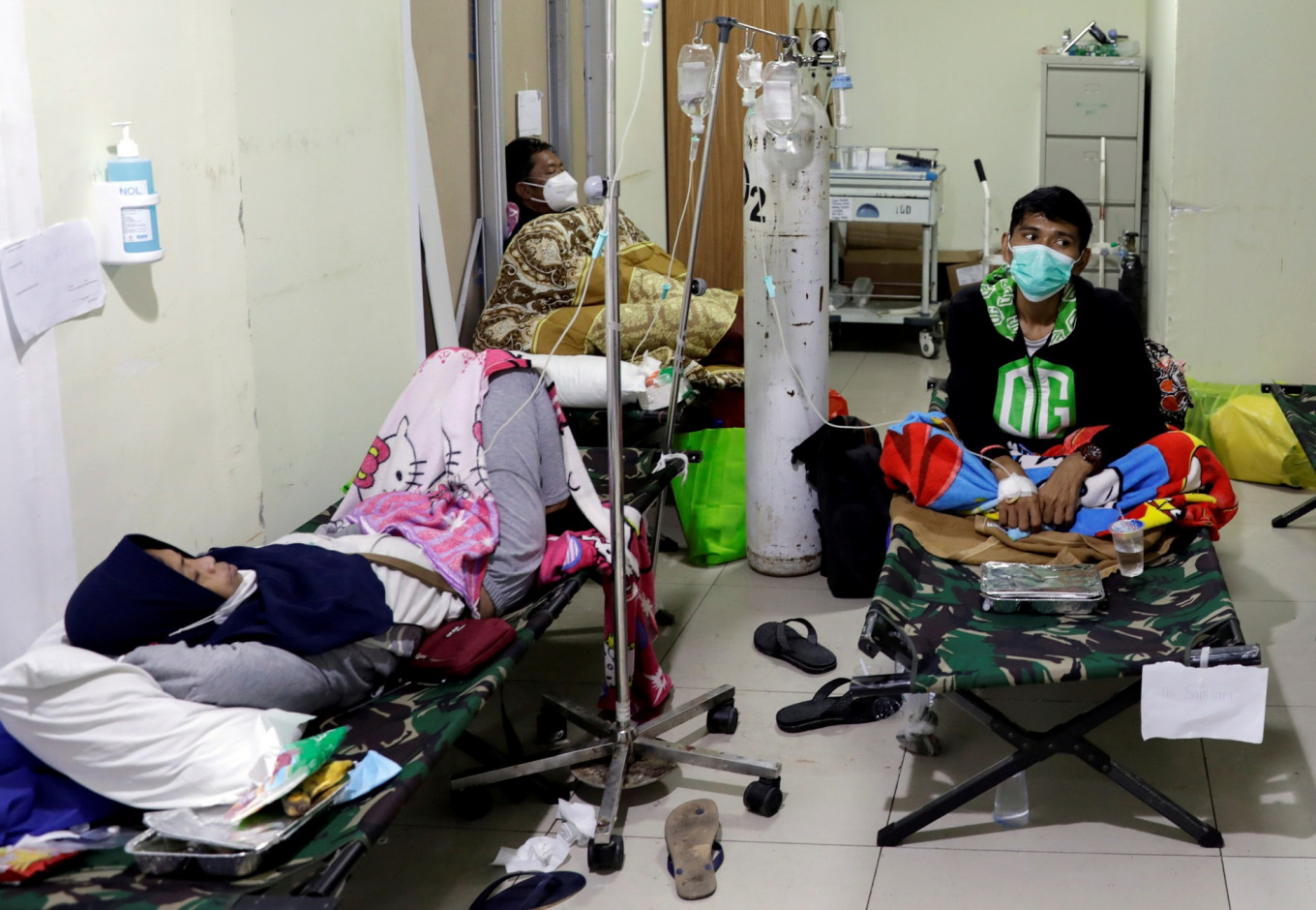Popular Reads
Top Results
Can't find what you're looking for?
View all search resultsPopular Reads
Top Results
Can't find what you're looking for?
View all search resultsCost of (easing) lockdowns
We argue that the country can no longer afford another policy blunder that will eventually choke both the people and the economy.
Change text size
Gift Premium Articles
to Anyone
T
he Joko “Jokowi” Widodo administration is planning to relax the current emergency mobility restrictions (PPKM Darurat) despite concerns that the ongoing health crisis, which has made Indonesia the new global epicenter of the outbreak, is far from over.
President Jokowi has come under increasing pressure to immediately reopen the economy, with business associations and labor unions warning of potential mass lay-offs and informal workers facing a hunger crisis should the government prolong the restrictions without adequate measures to cushion their impacts.
Indonesia is not the only country forced to choose between health and the economy, but its repeated failures to act fast before a crisis has gradually increased the stakes for whatever path it takes. The official and conservative number of deaths per day has already exceeded 1,000, while millions of people struggle to stay afloat under the large-scale PPKM, which to them stands for pelan-pelan kita mati (slowly we die).
We are fully aware the President is in a quandary, but we argue that the country can no longer afford another policy blunder that will eventually choke both the people and the economy. The government must rely on reliable data in its decision-making and be willing to do what it takes to protect the people.
While the government claims that any policy easing will depend on the pandemic situation on July 25, the end of the current PPKM extension, it has yet to outline clear parameters to warrant a reopening. Meanwhile, the nation’s pandemic data is still riddled with inaccuracies and inconsistencies to allow an informed decision.
The government has claimed that the emergency PPKM are working, saying that the number of cases and the bed occupancy rate at hospitals have gone down. But experts have argued that the declines had little to do with the PPKM, citing the fact that the testing rate has also significantly declined and that the government has added more hospital beds. This can’t go on. Scientific data, with all its limitations, should be the basis of the government’s decision on July 25, for the stakes are too high for another political gamble.
That being said, we are now at a point where any path we take will cost us dearly and the government must persevere until we can get out of this pandemic tunnel.
Should the numbers point to the possibility of relaxing the current mobility curbs, the government must ensure that it has at its disposal the resources to conduct aggressive testing and tracing to separate the sick and the healthy. This is crucial to prevent another massive outbreak that will put us in an endless pandemic loop.
But if they indicate that the infection is still running rampant and the hospitals cannot yet cope with a deluge of cases, then an extension, if not a tightening, of the PPKM is the only option.
The price of imposing a lockdown is high, as the government has to ensure the livelihood of those affected by the policy as stipulated under the Health Quarantine Law, without which a lockdown is nothing but a form of repression. But it is nothing compared to the price of easing it without warrant, which could mean only one thing: more people unnecessarily losing their lives to the virus.










